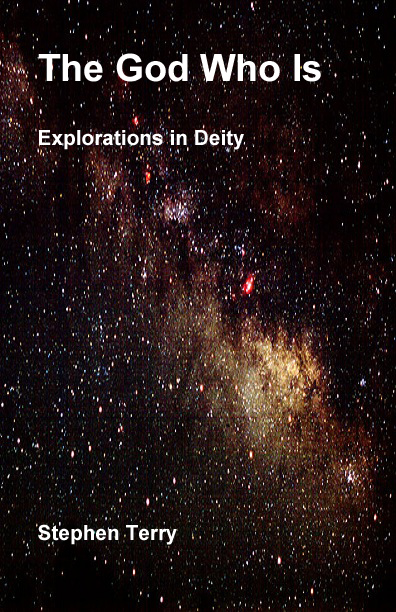
Stephen
Terry, Director

The Uniqueness of the Bible
Commentary
for the April 4, 2020 Sabbath School Lesson
 " We also have the prophetic
message as something completely reliable, and you will do well to pay
attention to it, as to a light shining in a dark place, until the day dawns and
the morning star rises in your hearts." 2
Peter 1:19, NIV
" We also have the prophetic
message as something completely reliable, and you will do well to pay
attention to it, as to a light shining in a dark place, until the day dawns and
the morning star rises in your hearts." 2
Peter 1:19, NIV
There
is little doubt about the uniqueness of the Bible. It is an anthology of works
by various authors on a religious theme written over more than a millennium.
While one may find contradictions between authors in various places within the
Bible, the underlying harmony is nonetheless astonishing for something with such
a diverse origin. Of course, one may attribute this to skillful editing as the
manuscripts were selected and collated by different groups and individuals during
that time. Review of those documents not included as the Bible was pieced together
is an interesting study in itself. But even of those included, the differences
between the documents included in the Septuagint and those found in the later,
4th century, canon are telling regarding what the faith communities
of different historical contexts thought relevant. The validity of what texts
should or should not have been included in the Bible has long been debated by
biblical scholars, but two things have long been apparent about the Bible.
The
first is that it seems to be impossible to read through the Bible, even
casually, without it having a profound impact on us. It does not coerce. It
simply offers alternatives to whatever our present world view might be. Even if
we already profess to be Christian, this does not lessen the challenge it
presents to our thinking as we continue to discover treasures of experience and
insight from the various biblical authors. The more we open ourselves to those
insights, the more we find ourselves changing, and others see those changes as
well and are often drawn by its positive nature to seek out the source of the
change. We find in the oldest and most foundational texts evidence of a
symbiotic relationship between ourselves and the world we live in. As a result
we become more caring about what happens to that world, and ultimately what could
happen to us. We may also discover in our common origins a more empathetic and sympathetic
perspective regarding our relationships to others in spite of ethnic, cultural
and environmental diversity in the world.
While
some have sought and found proof texts that they feel supports exactly the
opposite result, I would not recommend proof texting as a valid alternative to
sitting down and reading the Bible from cover to cover. Context may be even
more important to Bible study than it is to other books, and proof texting
removes those contextual restraints, sending us down chaotic and confusing
rabbit trails of belief. For instance, entire denominations have been built
upon a single text about handling snakes without harm.[i]
The people in these denominations then purposely handle venomous snakes during church
services to prove that God will protect them from snakebite. The belief in this
one proof text has been so powerful that even the deaths of some of those involved
have not dissuaded them from the practice. I can almost picture God saying,
"Out of all the books, all of the verses in the Bible and THAT was what
you became obsessed with?" When we take the Bible as a whole, we not only
become aware of some of the contradictions that exist within the text itself. We
also discover the dangerous contradictions that arise from these non-contextual
interpretations and their resulting applications.
The
second thing about the Bible that becomes apparent to the reader over time is
that you can never read the same book twice. This is not because the book
itself changes. It is because we change. What I read today, speaks into my
experience appropriately to where I am today. But six months or a year from now,
two things will have happened. First, I will be living my life in circumstances
that will have appreciably altered from where I was when I read the passage
previously, and second, my previous reading of the passage will have laid a foundation
for a deeper understanding when I returned to it in the future. Jesus, was
referred to in John, chapter 1 as the Word, and that word is presented as the source
of living water. The Bible is like a river of that living water in that, as the
proverb says, "You cannot step in the same river twice." This is
another area where proof texting can get us into trouble. The proof texting can
become like trying to hammer nails into the water in an attempt to force that which
is malleable to assume a consistent concrete foundation that overrides whatever
other considerations may validly vie for attention. Dogmatics, often formulated
as creeds or statements of belief, ultimately become more important than the
Bible that the proof texts were pulled from, and the freely flowing river of
living water is forced into cement-lined channels designed to stifle
independent interaction with the Bible. Jesus ran up against this with the
Pharisees of his day. The current ongoing attempts to set belief into hardened
effigies to denominational praxis are evidence that the tribe of the Pharisees
has not died out. Fortunately, the followers of Jesus have not died out either,
though they are at times as persecuted by the church now as Jesus was then.
This ability of the Bible to speak into whatever our current circumstance may
be cannot only provide amazing insights into our situation. It can actually set
us free from denominational control of our faith experience. This was the case
with Martin Luther, John Wesley, William Booth, and so many others who have had
a profound impact on the progression of Christian thought and practice. Each
came to realize that their denomination had no power to save them, and therefore
broke from their denomination to follow where they felt the Holy Spirit and
their reading of the Bible led them. Denominations are great for those who wish
to sit in a pew every week listening to those who tell them to do things they
know they will never do, only to return to their lives, rarely reading the
Bible beyond some denominationally approved devotional passage, and pursuing self-interest,
confident that they are on the path to heaven because of denominational assurances
based on their subscription to official creedal pronouncements. However, the
reformers I mentioned and others like them realized this was nonsense and
blazed a path for those willing to follow. They questioned everything knowing
that a dialectical approach had more validity than a didactic one when it comes
to self-actualizing the breath of the Holy Spirit into our lives. One can
preach the Holy Spirit until every voice preaching has been stilled without once
creating enough of a furrow in the human heart for the Spirit to plant and
germinate. But when one engages directly with the Holy Spirit dialectically by
reading the Bible and challenging that word with one's own life experience,
then seeds are planted that will produce what will ultimately sustain spiritual
life independent of human control but will be submissive to further influence
of the Spirit.
Experience
builds upon experience and faith builds upon faith. That growth is what
eventually produces someone with the strength to challenge the church as Jesus
did, as Martin Luther did, and so many others have, knowing that it is the Holy
Spirit that sustains us and not the power of institutions or their human
rulers. This does not mean we abandon the denominations. Just as Jesus attended
synagogue each Sabbath, and Luther continued to try to be a faithful church
member, we should also, but just as they experienced, the Holy Spirit may bring
things to our understanding that challenges the members and rulers of our denominations
and those insights may not be welcome. Eventually they may even drive us from
them as they did with Luther and Christ. But if they do, we are in good
company.
Powerful
people do not wish to have anything challenge their power, and because the
Bible leads us to question such power, both within and without the
institutional church, it is proscribed in most, if not all, totalitarian
societies. Even in such societies where it may be allowed on a limited basis,
the allowable interpretations of its teachings are tightly controlled by
censorship and constraint. It is the most radical challenge to power that one
can ever read. It is more radical than Mao's "Little Red Book." It is
more radical than Marx's "Das Kapital." This is not because it
advocates the physical overthrow of governments or institutions. It doesn't.
Instead it sets the mind free from thought control by appealing to an authority
greater than any earthly authority. When confronted by endless propaganda, the one
who has been an avid Bible reader can readily say, "I disagree for a greater
authority says it is not so, and the proof it is not so I have seen in my own
life."
We
can set aside our Bibles and allow them to collect dust, blithely allowing a
denomination or a political party to direct our lives in ways that will not be a
threat to either. We can pretend to emulate the super heroes we see on the
silver screen without ever so much as challenging ourselves to read something
as radical as the Bible and challenge the status quo with what we find there.
But if we choose that path, we may simply live our lives as one of the many who
spent themselves and their health only in service to the great, purposeless machine,
the juggernaut that consumes all the obedient with no other goal than to
preserve itself so it can continue to do so. The great heroes of the faith,
some in the Bible and some influenced by reading the Bible, did not need to
"rage against the machine." Their lives were witness that following the
machine leads nowhere. If we read the Bible and open our hearts to what it
tells us, letting it speak to our experience and not outside of it, we will
come to understand that also. That is why the Bible is the most radical book
ever written.
